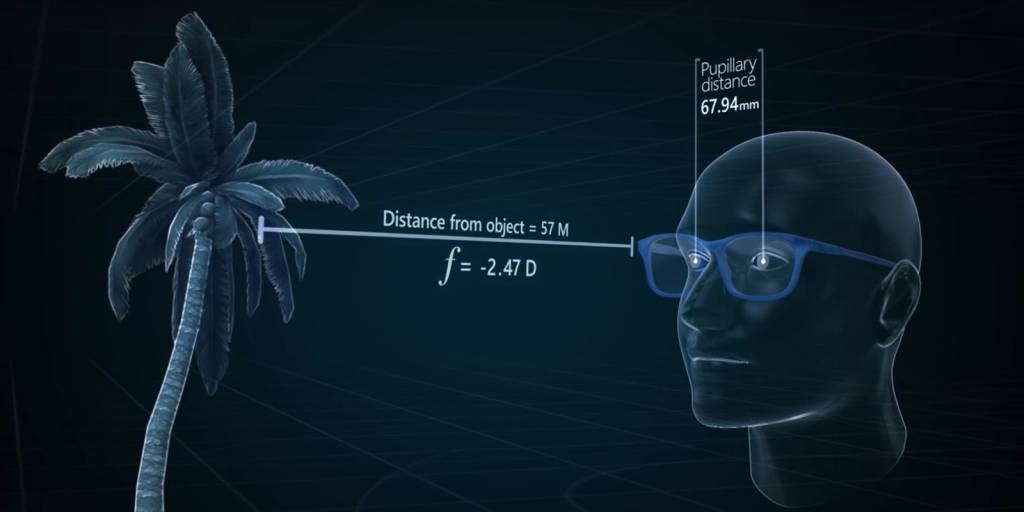Israeli startup Deep Optics is making glasses with lenses that can automatically adjust their optical power in real time.
An Israeli company called Deep Optics thinks its new high-tech glasses lens can change an ailment known as presbyopia. The “omnifocals” have the ability to change their optical power in real time, allowing the wearer to look wherever he or she wants without limiting the field of view or compromising clarity, according to Popular Mechanics magazine.
The Deep Optics lenses work by incorporating a layer of transparent liquid crystal that can be changed by an electric current. The liquid can adjust the refractive index of the lens—the way it bends light passing through—to effectively change the prescription of the glasses according to the distance of the object your eyes are focusing on.
Sensors in the glasses track the pupils of the wearer. Changes in pupillary distance, or the distance between the centers of the two pupils, indicate the depth of an object that a person is trying to focus on. A processing unit built into the glasses can use the pupillary distance to calculate exactly how far the user is from the object, and the correct electrical current alters the liquid-crystal layer to provide the perfect prescription in real time.
Liquid optics technology like this already has been used in smartphone camera lenses, but Deep Optics’ omnifocal lenses apply the technology on a much larger scale. Sophisticated sensor and processing technology is also required track eye position, compute distance, and tweak the liquid crystal lens accordingly.
Deep Optics CEO Yariv Haddad told Technology Review that the glasses would stay focused on distant objects as a default until the wearer looks at something close up, triggering the system that alters the lenses. “The user doesn’t have to control it, doesn’t have to look through a specific area of the lens,” Haddad told MIT. “[They] just have to look through the glasses as they would with any glasses prior to that.”
The company has a lot of work to do to perfect the lenses and shrink all the electric components so they can be crammed into a normal-looking pair of glasses. But they recently announced $4 million in venture capital to continue development, partly provided by French eyeglasses company Essilor. Haddad hopes the omnifocals will be ready for human trials in two years.
By: United with Israel and Jay Bennett, Popular Mechanics
Do You Love Israel? Make a Donation - Show Your Support!
Donate to vital charities that help protect Israeli citizens and inspire millions around the world to support Israel too!
Now more than ever, Israel needs your help to fight and win the war -- including on the battlefield of public opinion.
Antisemitism, anti-Israel bias and boycotts are out of control. Israel's enemies are inciting terror and violence against innocent Israelis and Jews around the world. Help us fight back!
